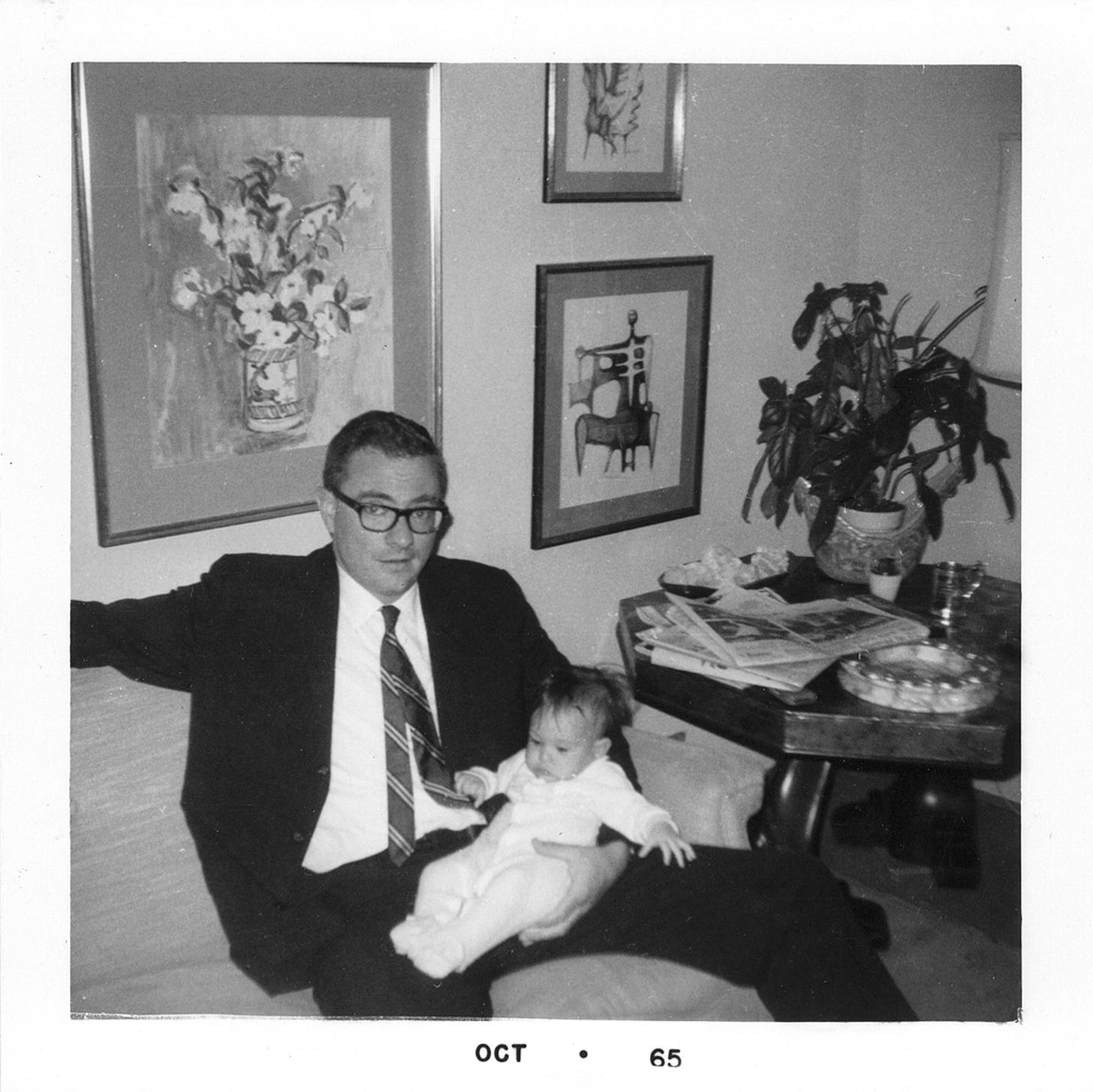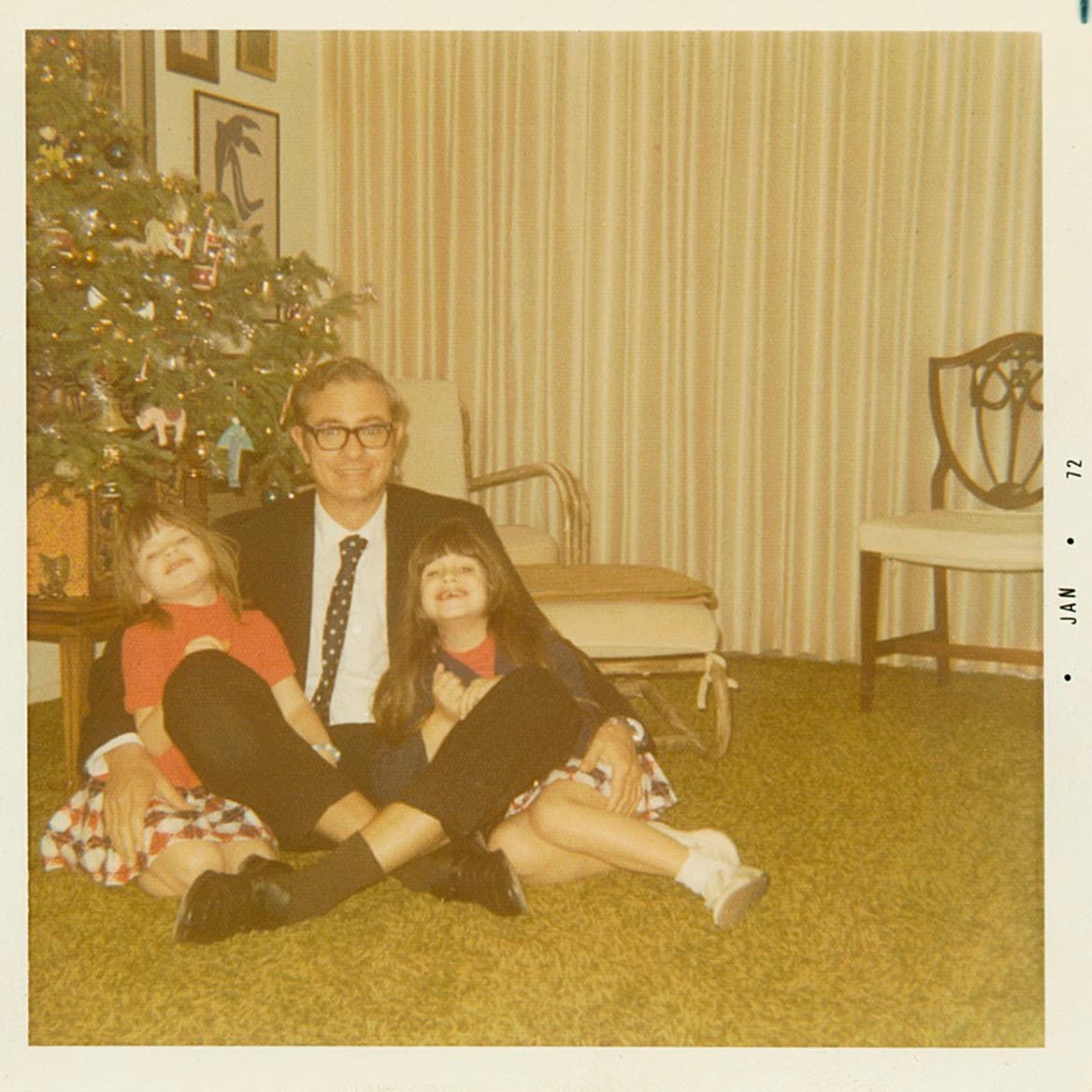The Children of the Russian Spy Couple Were Lied To
As a fellow spy kid, I know the feeling

An undercover Russian spy couple returned home recently as part of one of the biggest prisoner swaps since the Cold War. They brought their children, 12-year-old Sofia and 9-year-old Gabriel, who were born in Argentina and spoke only Spanish. The parents were arrested on espionage charges, and their children were placed in foster care. News outlets have reported that Sofia and Gabriel didn’t know their parents’ true identities or that they were Russian until the plane ride that ferried them back to the Motherland. It’s an interesting theory but I think it’s unlikely. Spy children know when they’re being lied to. I did.
I was ten when I confronted my father about his work. I had long suspected he wasn’t like other dads even though I couldn’t say exactly why. So, one day, I decided to ask. Dad was on his way out the front door of our suburban Dallas home when I popped the question, “Dad, what’s your job?”
He stopped to consider me, his daughter, my hands on my hips, a messy ponytail trailing my back. “I’m in the Army,” he said. Although I had never seen him in a uniform, it made me proud to think of him as a soldier. He was protecting America and that was fine with me. But a few months later I overheard him saying to someone on the phone that he was with the State Department. Nothing had changed in our family’s life. Same house. Same school. Same routines.
I knew he wasn’t telling me the truth but I didn’t say anything. Children of spies learn to keep secrets. No one has to tell you to do this. It’s an unspoken expectation. I began to study him more closely. I wanted to find out what made him tick—and I did. When his eyes got still and sort of quiet, I knew he was lying. Over time, I got good at knowing who was talking—Government Dad or Family Dad. When Government Dad was talking, I tuned out. But when he was laughing and teaching me how to swim to the far end of the pool and back in a single breath, I knew it was Family Dad. That’s the one I listened to—and loved.
Code-switching is a part of spy family culture. All children of spies know how to do this. It helps me feel in control. I learned to do it so I could understand my dad. But I had other reasons too—namely, the fact that I liked girls. I knew it was wrong. I had been called a lezzie by a boy in the fifth grade. From that moment on, I hid who I was and pretended to have crushes on boys. Code-switching then, for me, was about moving between two secrets, not just one. Passing as straight was the lie I told myself and others but being lied to by my father felt different. National security necessitated his lies. Still, this was something I had to put together later as an adult. When I was lied to growing up, I simply felt betrayed, like I didn’t deserve to know the truth. It doesn’t necessarily make sense but being a spy kid doesn’t always add up. Often, it’s downright confusing.
The first time things got less confusing was during a Sunday drive, a family ritual that, at thirteen, I hated. I climbed into the car along with my mom and younger sister and looked out the window while Dad steered the car down the quiet streets of McLean, Virginia. On this particular day, something was off. Mom wasn’t pointing out pretty gardens or stately homes like she usually did. Had they been fighting? I had no idea. I stared at the neat green lawns when, out of nowhere, my mother turned to my father and said, “Tell the girls what you do.”
I couldn’t believe she was talking about the thing we never discussed.
I shifted my gaze to Dad’s face in the rearview mirror. He looked stunned. He kept a death grip on the steering wheel and started throwing out answers. “I manage people,” he said.
This rankled Mom. She spun around and looked fiercely at me and my sister. “Do you girls have any questions for your father about his work ‘managing people?’” She was my instant hero. I loved her nerve. It told me she’d had enough of the silence and secrecy. We all had.
I jumped in with questions. But each time I asked something, Dad’s answers grew more and more vague.
“What do the people you manage do?” I asked.
“Research current events?” he said.
“What kind of current events?” I asked.
“World events,” he said.
I was getting nowhere. Mom saw me about to give up. She pursed her red lipstick lips and dropped the bomb. “You work for the CIA, don’t you?” The air inside the car stilled. CIA? It meant spy. Dad was a spy. My mind flashed to James Bond. He chased people down alleys and jumped from helicopters. He vacationed on yachts with models. Bond was sexy whereas my dad was a full-on nerd. He was nothing like 007. But that wasn’t even the point. We were talking. Things were opening up and it felt exhilarating. I fast-forwarded to my new future, one in which my family opened up about everything in our lives. The word lezzie hovered above me. The fact that I liked girls. Maybe I could even talk about that. But my father stayed silent. He kept his eyes on the road and didn’t confirm or deny what my mother had said. Over the next few weeks, my sense of freedom dried up. There was no more talk about secrets. It all sank below the surface again.
I bet Sofia and Gabriel know this feeling well. There were probably many moments when their parents offered some type of explanation for odd behavior that wasn’t convincing. Maybe their parents disappeared for hours without notice, or maybe they overheard them speaking Russian into an encrypted device. Certainly, when their parents were arrested in Slovenia for being spies, causing them to be shuffled off into foster care, they realized nothing was as it seemed.
I can’t imagine the heartache they must have felt at that moment. They may have suspected their parents had secret lives, but to learn their mom and dad were spies from officials who were coming to arrest them must have been baffling. That level of stress and trauma feels overwhelming to me. Perhaps their parents managed to tell them the truth before the officials arrived. Maybe Sofia and Gabriel were able to share a moment of trust and disclosure with their parents. On the other hand, maybe their parents couldn’t face the situation so said nothing. It’s possible Sofia and Gabriel found out precisely when the officials showed up at the house, knocked, and took their parents away.
For me, learning the truth was shocking but also liberating.
It happened on a regular day in Northern Virginia when I was 20. I was home from college for the summer. Dad picked me up from the airport and said he was taking me to his new house. We made small talk as he drove the winding roads. He turned off the main road, pulled up to a small, low-lying building, and got out of the car. A guard came out. A few minutes later, the guard motioned for me to get out of the car. He held a clipboard and announced that this was a CIA base and that anyone who lived there had to sign a form saying they wouldn’t disclose this to anyone.
There it was. The secret was finally out in the open. My father hadn’t been the one to tell me. A stranger had. Still, the truth reverberated through me. I felt light and happy. Now I knew. No more hiding. Until I noticed the guard waiting for me. He pushed a pen my way. I realized the moment wasn’t about liberation. It was about doubling down on the secret. My optimism sank. I grabbed the pen, signed my name, and walked back to the car as if I were moving through quicksand. I was part of the secret now—officially.
Ever since learning about this Russian spy couple’s family, about how these two kids, preteens, had their lives pulled out from under them, I’ve been thrown into so many feelings. And questions. What was it like to be taken to a plane destined for Russia and told that they were Russian and not Argentinian—or Slovenian? I wonder how disorienting this whole experience has been for them. And while I certainly can’t speak for them, I can relate to the betrayal and the pain of being lied to by someone you’re supposed to trust. Mostly, I’m angry at the way spy children so easily become collateral damage in the game of espionage. We’re just dragged along, country to country, expected to adjust, to keep the family’s secret and say nothing.
That discrepancy between autonomy and its lack gets to the heart of the matter. My dad signed up to be a spy, got paid for it, and eventually decided to retire from the profession. It was a calling for him. He gave his service to this country and I’m deeply moved by that act. I honor his sacrifice. Still, it was a choice. His choice. I didn’t have the same choice. Just like Sofia and Gabriel didn’t have a choice. And now their lives are upended. Freedom gone.
Spies lie to their children to protect them and to protect themselves. But there’s a cost. It took years for me to work through my trust issues. I imagine this will also be the case for Sofia and Gabriel. At least they have each other. Hopefully, they can create a new chapter as a family—one more intact than the story told in recent news reports. I certainly hope so.
As for me, I did learn to trust my dad again and I credit writing for our reconciliation. I was angry and hurt when I started working on my memoir, Spy Daughter, Queer Girl. I envisioned that by writing my story, I would prove my father’s culpability in a Cold War coup and also his failings as a father. Instead, writing took me deeper into complexity and compassion—for myself and for my father. It prompted me to interview him, which in turn led to conversations about his work and our family. It was in one of these conversations that my father apologized for not being present for me growing up. His apology changed everything. Not only did my anger subside, I was able to let go of what was never mine to carry. The writing was the healing.
Leslie Absher is a Bay Area journalist and author of the memoir Spy Daughter, Queer Girl. Her father, Kenneth Michael Absher, was a lifelong CIA officer who worked in the Directorate of Operations for nearly 32 years and was twice awarded the Intelligence Medal of Merit. She lives in Oakland with her writer/lawyer wife. Her work has been published in the New York Times, The Independent, Huffington Post, and elsewhere.





Thanks for posting this piece. There are many types of family secrets. Being the child of a spy is one that tends to stay in the shadows. Always glad to see it out in the open!
Thanks for sharing Leslie's story. As another fellow spy kid, I relate all too well.